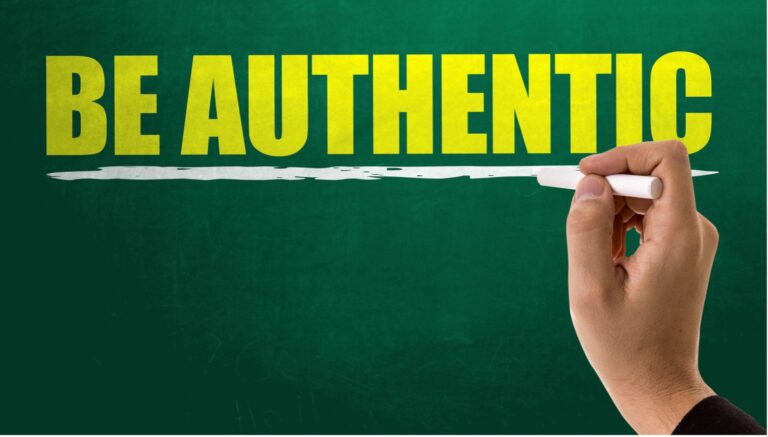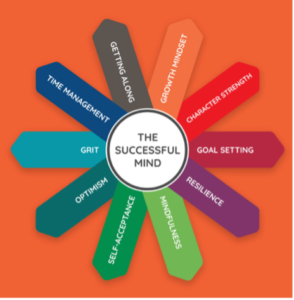Being Authentic Primes Social-Emotional Learning
Dr Michael E. Bernard
Founder, You Can Do It! Education
Emeritus Professor, California State University, Long Beach
Former Professor, Melbourne Graduate School for Education, Melbourne University
Doctorate of Educational Psychology

Social-emotional learning (SEL) can come across as insincere to students if their teachers are not practicing what they are teaching. Students are perceptive and can sense when their teacher is only delivering a program without applying its principles to their own lives. Knowing this can make students less likely to engage in the program. Being authentic with students can make a difference.
 Recently, during an evening talk, a mother of a Year 7 student crystallised this for me. The mother emphatically expressed that parents need to lead by example. She described that when parents get upset about their children’s behaviour in front of their child, it can be difficult for the parent’s conversation about staying calm to have an impact. Children are more likely to follow the actions of their parents rather than just their words – parents need to “practice what they preach”.
Recently, during an evening talk, a mother of a Year 7 student crystallised this for me. The mother emphatically expressed that parents need to lead by example. She described that when parents get upset about their children’s behaviour in front of their child, it can be difficult for the parent’s conversation about staying calm to have an impact. Children are more likely to follow the actions of their parents rather than just their words – parents need to “practice what they preach”.
 In the same week, during a professional learning session on student wellbeing, the Principal of a large secondary school emphasised that social-emotional learning is not just a program to be delivered but a way of life. He advised his staff to be open, honest and to be, in his words, “authentic” in their interactions with students. By leading by example, teacher create a safe and supportive learning environment and help students develop the skills they need to succeed academically and in life.
In the same week, during a professional learning session on student wellbeing, the Principal of a large secondary school emphasised that social-emotional learning is not just a program to be delivered but a way of life. He advised his staff to be open, honest and to be, in his words, “authentic” in their interactions with students. By leading by example, teacher create a safe and supportive learning environment and help students develop the skills they need to succeed academically and in life.
 In a session I conducted with over 40 of this school’s staff members, we discussed leading the program, The Successful Mind. To start the session, I asked all staff to review the ten elements of a Successful Mind and to identify those they felt were their stronger ones and those they felt needed more development. I also shared my own. Staff were enthusiastic about the activity and when asked, were willing to share their profiles with students, indicating their openness and willingness to be genuine and “authentic”.
In a session I conducted with over 40 of this school’s staff members, we discussed leading the program, The Successful Mind. To start the session, I asked all staff to review the ten elements of a Successful Mind and to identify those they felt were their stronger ones and those they felt needed more development. I also shared my own. Staff were enthusiastic about the activity and when asked, were willing to share their profiles with students, indicating their openness and willingness to be genuine and “authentic”.
The main takeaway from these examples is that for educators to successfully and convincingly present social-emotional learning programs, they are helped when they demonstrate authenticity in their interactions with students.
Here are some ideas I have assembled to aid this enterprise and which can be shared with staff involved in social-emotional learning. Here’s how authentic teachers demonstrate authenticity through their words and actions:
Open and Honest Communication: Authentic teachers communicate openly with students, sharing their thoughts, expectations, and feedback transparently. They encourage dialogue, actively listen to student perspectives, and respond empathetically to their concerns.
Building Trust and Respect: Authentic teachers prioritise building trust and respect in the classroom. They greet students warmly, address them by name, and demonstrate genuine interest in their wellbeing. They establish a foundation of mutual respect and trust through consistent and fair treatment.
Creating a Supportive Atmosphere: Authentic teachers foster a supportive classroom atmosphere where students feel safe to express themselves and take intellectual risks. They validate students’ experiences and perspectives, creating space for diverse viewpoints and contributions.
Acknowledging Mistakes and Learning Opportunities: Authentic teachers acknowledge their own fallibility and openly admit mistakes when they occur. They model humility and resilience by using errors as teachable moments, demonstrating that learning is a continuous process for students and teachers alike.
Cultivating Positive Relationships: Authentic teachers invest in building positive relationships with each student, recognising and celebrating their unique strengths and contributions. They demonstrate empathy and compassion, taking the time to understand individual student needs and providing personalised support.
Encouraging Self-Reflection and Growth: Authentic teachers encourage students to reflect on their learning experiences, offering opportunities for self-assessment and goal-setting. They provide constructive feedback that is specific, actionable, and focused on promoting student growth and development.
Promoting Inclusivity and Equity: Authentic teachers create an inclusive learning environment that celebrates diversity and fosters a sense of belonging for all students. They openly address issues of bias and discrimination, promoting social justice and equity within the classroom community.
By embodying these principles and practices, authentic teachers create a dynamic and nurturing learning environment where students feel valued, empowered, and inspired to reach their full potential. As a result, students are less likely to be resistant to social-emotional learning and more likely to engage with and benefit from SEL.




